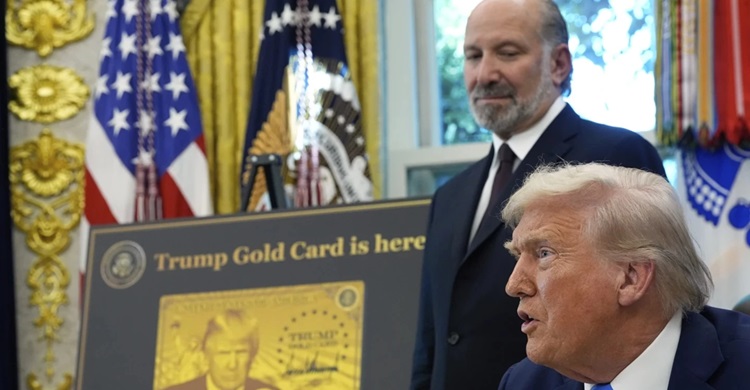White House clarifies $100K H-1B visa fee won’t affect current holders as Trump plan sparks concern


The White House on Saturday clarified that President Donald Trump’s newly announced $100,000 fee for skilled-worker visas will not apply to existing H-1B visa holders, following confusion and rising anxiety among immigrant workers.
Trump on Friday, alongside Commerce Secretary Howard Lutnick, signed a proclamation requiring the hefty fee for new H-1B visas, which allow U.S. companies to hire foreign professionals in specialized fields. The new rule takes effect at 12:01 a.m. ET Sunday and will remain in place for a year, with the option of extension.
“Those who already hold H-1B visas and are currently outside of the country will NOT be charged $100,000 to re-enter,” White House press secretary Karoline Leavitt said on X. “This applies only to new visas, not renewals, and not current visa holders.” Officials also stressed the measure does not affect the ability of current visa holders to travel to and from the U.S.
Even so, immigration lawyers warned that the move creates chaos. Kathleen Campbell Walker, an attorney in Texas, wrote that the administration had “inserted total chaos into the H-1B process with barely a day’s notice.”
While Lutnick initially suggested the new fee would be an annual cost for companies, a White House official later described it as a one-time fee, adding that its application to renewals remains “under discussion.”
India, whose nationals account for over 70% of H-1B visas, voiced concern over the policy. The Ministry of External Affairs said it is reviewing the plan, warning that the measure could disrupt families and have “humanitarian consequences.”
The changes also include a $1 million “gold card” visa for wealthy individuals seeking a path to U.S. citizenship, and a $5 million “Trump Platinum Card” that would allow foreigners to spend up to 270 days in the U.S. annually without paying U.S. taxes on foreign income.
Critics say the dramatic hike — raising fees from the current $215 to $100,000 — will effectively slash the number of H-1B visas issued each year, making it “uneconomic” for companies to bring in foreign talent. Lutnick argued the shift would push employers to train more Americans, while advocacy groups opposing H-1Bs applauded the move.
Tech companies, however, remained silent. Amazon, Apple, Google, and Meta did not immediately respond to requests for comment, while Microsoft declined. The U.S. Chamber of Commerce expressed concern, warning of negative consequences for employees, their families, and American businesses.
Trump’s overhaul is expected to face strong legal challenges, with critics calling the plan politically motivated and potentially unlawful. Doug Rand, a former U.S. immigration official, described the measure as “fan service for immigration restrictionists” that may not withstand judicial scrutiny.
Historically, H-1B visas are distributed by lottery, with Amazon topping the list of recipients this year, followed by Tata Consultancy, Microsoft, Apple, and Google. Analysts note that while the program is designed for highly skilled positions, many visas go to entry-level roles through consulting firms, particularly those based in India, raising ongoing debates about its impact on U.S. wages and jobs.
